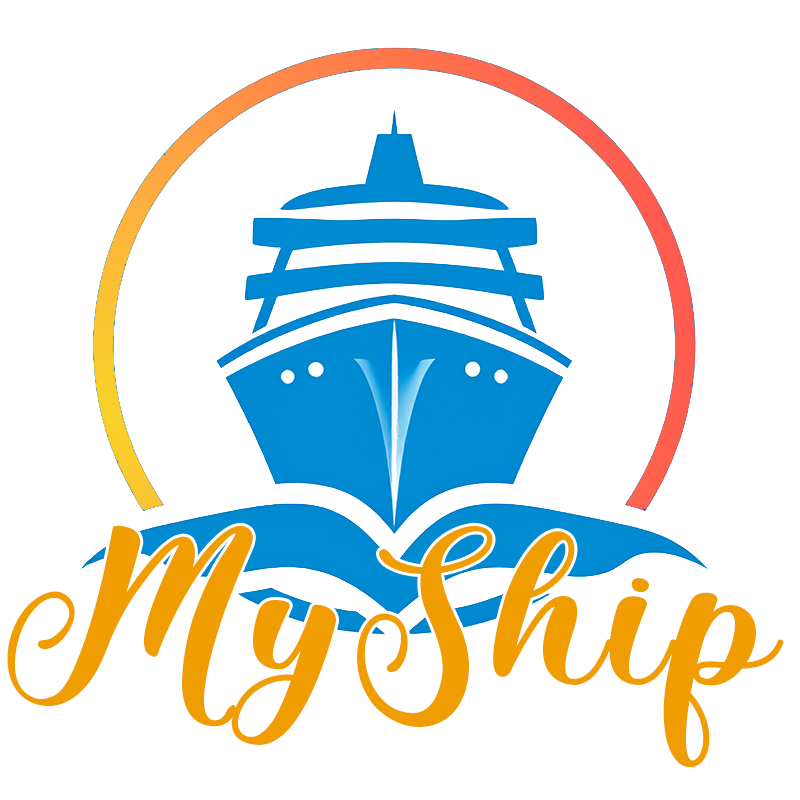The sea there looked polished and patient, a mirror laid face-up to the sky. Beneath it, shapes gathered—arches, rings, a fallen tower with windows like unblinking eyes. The star-compass hummed a new note, and the mercury arranged itself into concentric circles that turned counter to the waves.
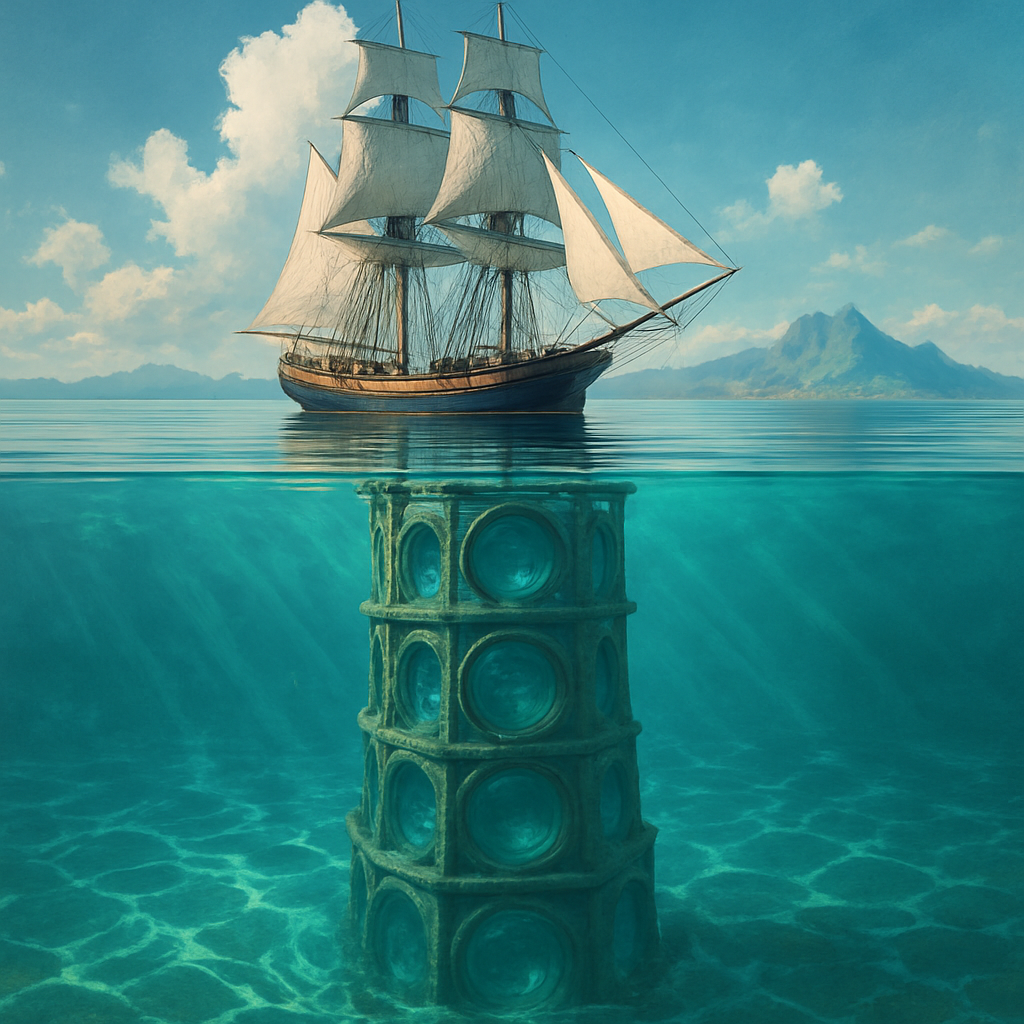
“Lenses that remember the sky,” Mireya said. “Even when the sky forgets itself.”
“Drop way,” Silas ordered. “We go quiet.”
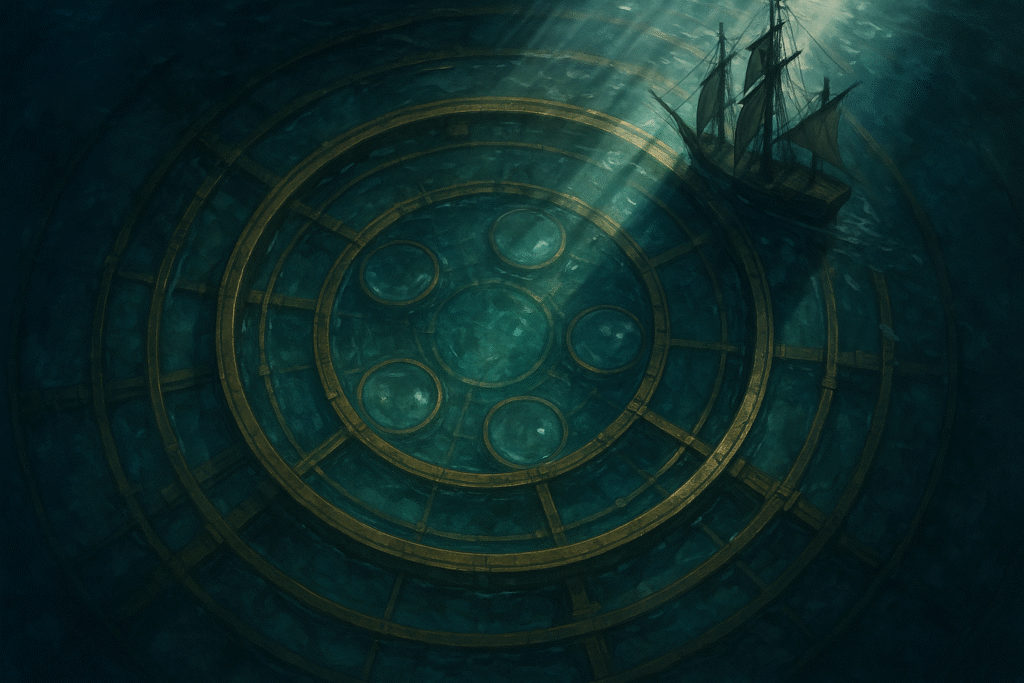
Bosun Briggs eyed the light with suspicion only a truthful man can afford. “We diving or begging the sea to come up and meet us?”
“Both,” Silas said. He set the iron chest by the mainmast; Finn laid his marked palm on the serpent lock. The steel scales cooled, listening. The chest breathed once and exhaled a clear bell of air that clung to the deck like a soap bubble.
“Minutes,” Mireya said softly. “Enough for six lungs if we’re polite.”
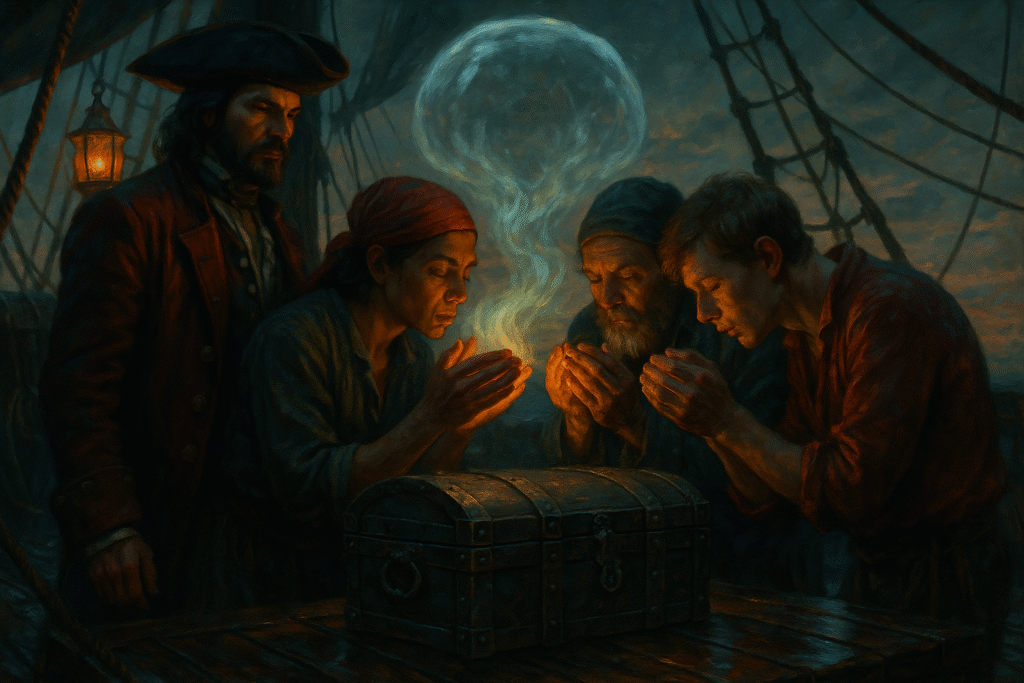
Finn’s lines brightened; a new knot-glyph pricked his skin—clove hitch: quick to set, quick to move. “I can fasten the air to us,” he said, surprised by his own certainty.
They went over the side: Silas, Mireya, Finn, and Briggs last, who pretended not to mind the way water erases laughter. The air-bell followed, tethered by Finn’s invisible hitch. Sound turned woolen. The observatory rose to meet them: a rotunda of stone and brass, its heart a great lens cracked like ice on a river.
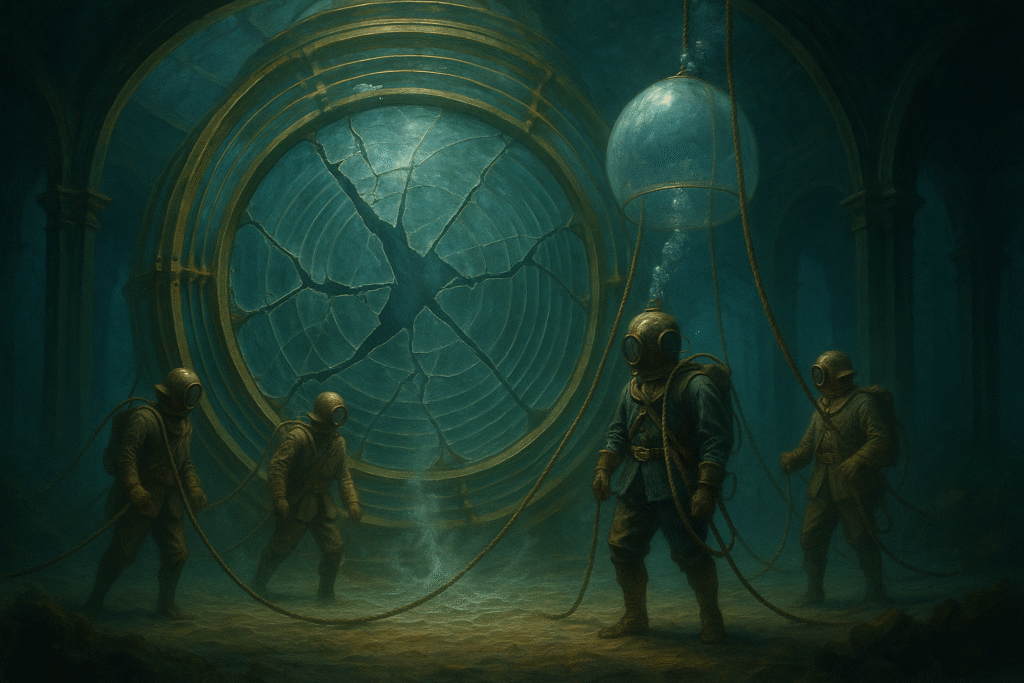
Symbols ticked along the lens rim, older than charts, new as dawn. The quicksilver in the compass answered—pointers turning, channels knitting to match. Mireya’s eyes shone with the kind of happiness arithmetic gives to very few.
“Align it,” she signed.
Finn set his palm to the brass and felt the tide of years pulling unevenly, as if the sea had limped once and never stopped. He turned a ring; Silas steadied the frame; Briggs shouldered a jammed gear with the dedication of a saint moving furniture. The crack sang—one long, almost-note.
Shadow crossed the sun above. The Santa Lucía had arrived.
A pressure pinched the water—the Ash Mirror’s broken will squeezing currents into knots. The bell around them shivered; the clove hitch slipped a finger.
“Hold,” Silas mouthed. Finn tightened the hitch—twist, lock, set—and the air held. Outside, clock-eels nosed the dome and recoiled, annoyed at physics.
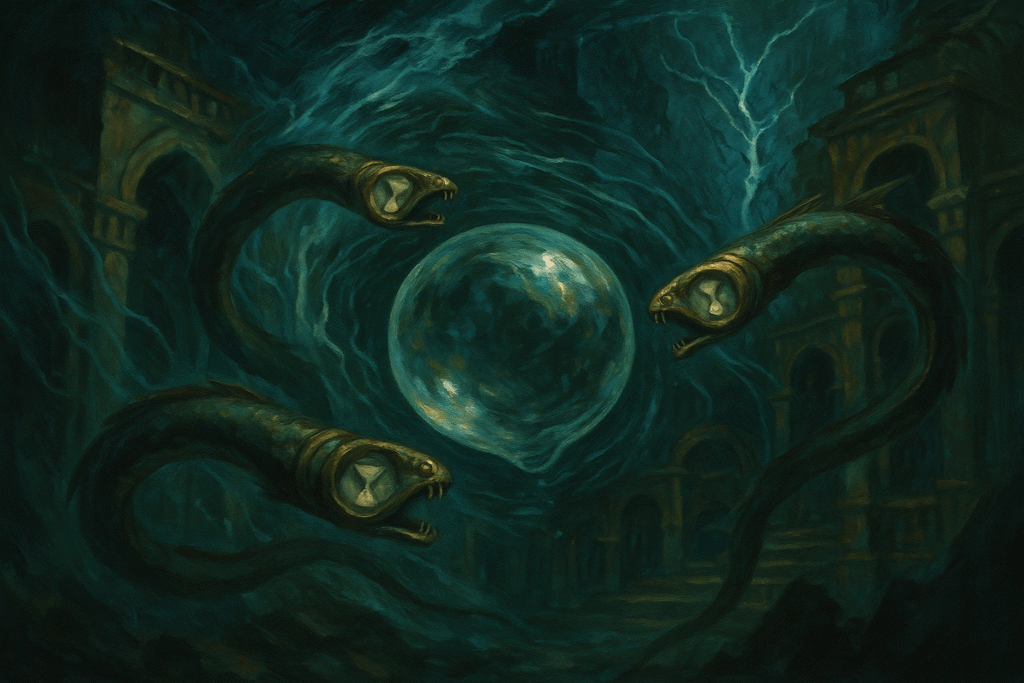
Mireya touched Finn’s wrist, then the lens. Turn. He did. The compass clicked in agreement; mercury flowed to a tidy alignment; the rotunda drank light and gave back a map on nothing at all—lines etched into the water like frost on glass.
It wasn’t a place. It was when. Islands stacked behind themselves, reefs shown at the hour they killed, harbors open on tides that hadn’t happened yet. At the center, a glyph Finn could read without knowing how: The Oculus.
Silas bled a clean drop onto the rim. “Price?” his eyes asked.
The observatory answered without words, the way a scale does: memory. Not anyone’s. His.
Silas didn’t flinch. “Take the taste of the night I bargained,” he mouthed, and it left him—nothing dramatic, just a flavor removed from a story he still owned.
The crack sealed enough to hold truth. A small lens unlatched from the mechanism and rose, buoyed by a preference the sea sometimes shows for the undeserving. Finn caught it: a palm-sized disc, cold as thought.
“The Oculus,” Mireya signed, reverent.
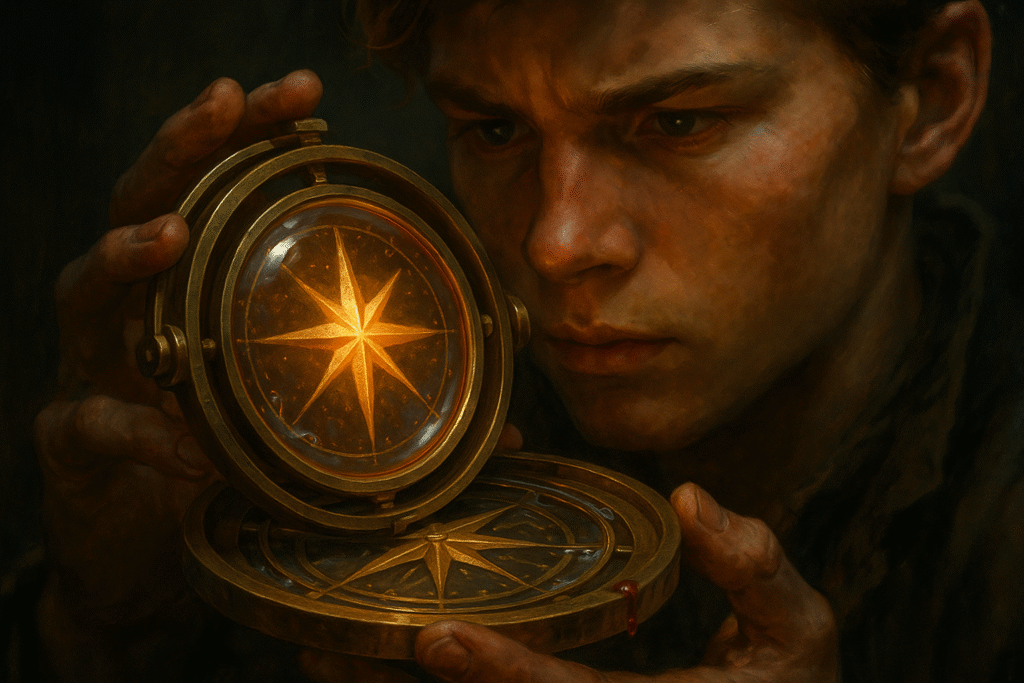
Above, cannon-thunder became a distant sermon. A shot plunged, wicked and sure. Briggs turned, ready to put his back in front of iron he could not stop.
The shot slowed. The air-bell bulged and refused. The observatory’s lensing bent the path like a reed bends wind. The ball kissed stone and slept there, old all at once.
“Time to go,” Silas signed. Finn tucked the Oculus to his chest and loosed the hitch. The air-bell rose. They rose with it, hands on rope, eyes on one another, a chain the sea could measure and leave be.
They broke the surface into noise and honest light. The Crimson Horizon hauled them aboard; the Santa Lucía’s boat crews were already in the water, blue coats dark as bruise.
“Spread canvas,” Silas said. “Easy as leaving church. Hayes, make dignified haste.”
The frigate’s cracked mirror flashed; wind pinched. Finn slipped the Oculus before his eye and the world shifted—threads of wind, habits of current, a hollow where pressure didn’t know it was missing.
“There,” he said. “A slack under their pinch. Three points lee-ward. We’ll step behind their hand.”
Hayes obliged. The brig slid into the hollow like a rumor. The mirror’s grip missed by an inch that might as well have been a league.
Capitana Valdés watched from her quarterdeck, expression unreadable as a closed book. She raised two fingers—to the mirror, to fate, to the idea of a duel that refuses to stop at swords.
“Home,” Silas said, but he meant only away. The crew moved like a single intention.
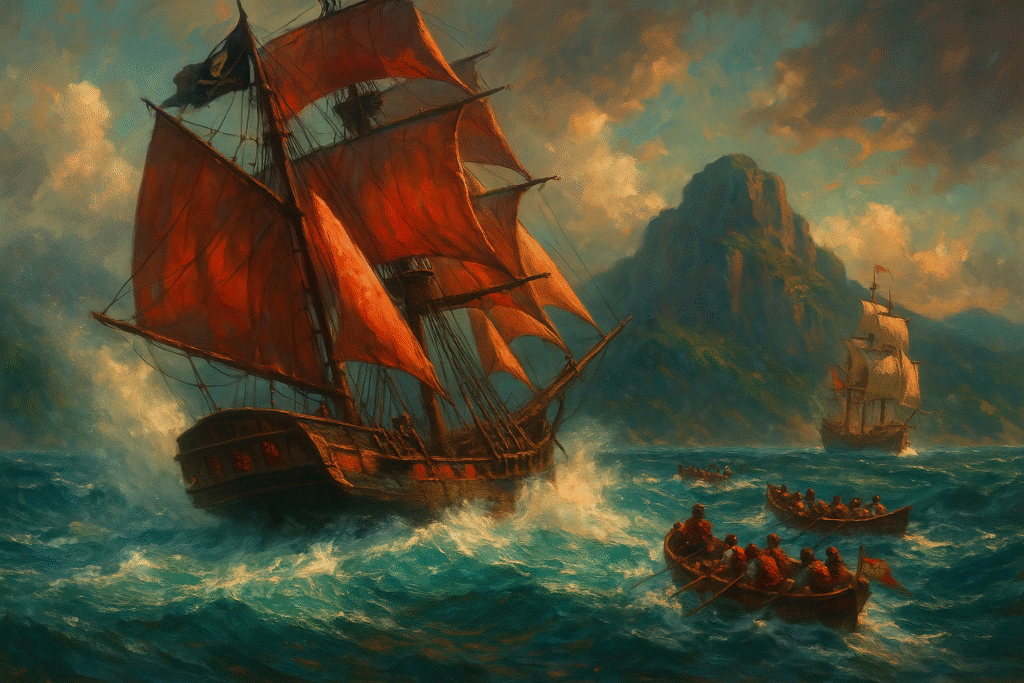
They didn’t outrun the Spaniard. They out-timed her, which is different. By dusk, the frigate lay two miles astern and one tide off. The observatory sank back into its patience. The star-compass relaxed into an ordinary hum that had learned a new word.
On the night watch, Finn lifted the Oculus again. Through it, constellations connected into work rather than romance. He saw the next instruction written between stars:
The Lattice Shoals.
Silas joined him at the rail, older by a breath and content with the arithmetic. “Keel, crew, cost,” he said.
“And time,” Finn added.
“And stubborn,” Briggs said from the shadow of the main, because he liked to be counted last and loud.
Mireya closed the chest. The serpent lock blinked once, as if it dreamed.
—To be continued—
